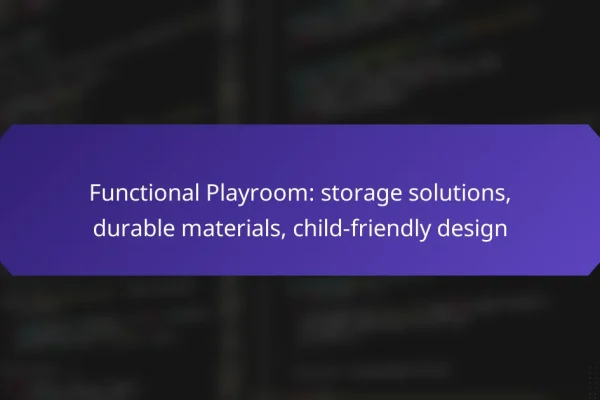What are the outcomes of kitchen renovations in Canada?
Kitchen renovations in Canada can lead to significant benefits, including increased home value, improved functionality, and enhanced aesthetics. Homeowners often see a return on investment that can vary based on the scope of the renovation and local market conditions.
Increased home value
Renovating a kitchen typically boosts a home’s market value, often recovering a substantial portion of the renovation costs. In Canada, homeowners can expect to recoup around 70-80% of their investment, depending on the quality of materials and the extent of the updates.
To maximize value, focus on popular upgrades such as modern appliances, quality countertops, and updated cabinetry. These features are highly sought after by potential buyers.
Improved functionality
A well-planned kitchen renovation enhances functionality by optimizing the layout and workflow. Consider the “kitchen work triangle” concept, which positions the sink, stove, and refrigerator in a triangular layout for efficiency.
Adding features like an island or additional storage can significantly improve usability. Ensure that the design accommodates your cooking habits and lifestyle needs.
Enhanced aesthetics
Kitchen renovations allow homeowners to create a visually appealing space that reflects their personal style. Upgrading finishes, colors, and fixtures can transform an outdated kitchen into a modern masterpiece.
Consider trends like open shelving, bold backsplashes, or sleek cabinetry to enhance the overall look. Aesthetic improvements can make the kitchen a focal point of the home.
Energy efficiency upgrades
Incorporating energy-efficient appliances and fixtures during a kitchen renovation can lead to long-term savings on utility bills. Look for ENERGY STAR-rated appliances, which can reduce energy consumption significantly.
Additionally, consider installing LED lighting and low-flow faucets to further enhance energy efficiency. These upgrades not only save money but also contribute to a more sustainable home.
Better resale potential
A renovated kitchen can greatly improve a home’s resale potential, attracting more buyers and potentially leading to quicker sales. Homes with modern, updated kitchens are often more appealing in competitive markets.
When planning renovations, keep in mind the preferences of your target market. Neutral colors and timeless designs tend to attract a broader audience, increasing the likelihood of a successful sale.
What are the outcomes of bathroom renovations in Canada?
Bathroom renovations in Canada can lead to enhanced functionality, improved aesthetics, and increased property value. Homeowners often experience a combination of comfort, safety, and efficiency benefits that make these renovations worthwhile.
Higher comfort levels
Renovating a bathroom can significantly enhance comfort levels by optimizing space and improving layout. Features such as heated floors, spacious showers, and ergonomic fixtures contribute to a more enjoyable experience. Homeowners often report feeling more relaxed and satisfied with their daily routines after such upgrades.
Consider incorporating elements like soft lighting and quality materials to further elevate comfort. Simple changes, such as adding a larger vanity or better storage solutions, can make a notable difference in how the space feels.
Modernized fixtures
Upgrading to modern fixtures is a key outcome of bathroom renovations. New faucets, toilets, and showerheads not only improve the look of the bathroom but also enhance functionality. Many modern fixtures are designed to be more user-friendly and efficient, making daily tasks easier.
When selecting fixtures, look for those that meet Canadian standards for water efficiency. This can lead to reduced water bills and a smaller environmental footprint, making modernized fixtures a practical choice.
Increased safety features
Safety is a crucial aspect of bathroom renovations, especially for families and seniors. Installing grab bars, non-slip flooring, and improved lighting can significantly reduce the risk of accidents. These enhancements ensure that the bathroom is a safe space for all users.
Consider consulting with a professional to identify specific safety upgrades that fit your needs. Simple modifications can make a bathroom much safer without requiring a complete overhaul.
Water conservation benefits
Bathroom renovations often lead to better water conservation through the installation of low-flow fixtures and efficient plumbing systems. These upgrades can help reduce water usage by a significant percentage, which is beneficial for both the environment and household expenses.
Homeowners can look for products that are certified by organizations like the WaterSense program, which indicates they meet strict efficiency criteria. This not only conserves water but can also lead to lower utility bills over time.
Boosted property appeal
Renovating a bathroom can greatly enhance the appeal of a property, making it more attractive to potential buyers. A modern, well-designed bathroom can be a key selling point, often leading to higher offers and quicker sales. In the competitive Canadian real estate market, a renovated bathroom can set a home apart.
Investing in quality materials and finishes can further increase property value. Focus on timeless designs that appeal to a broad audience to maximize the return on investment when selling your home.
What are the outcomes of basement renovations in Canada?
Basement renovations in Canada can significantly enhance the functionality and value of a home. Homeowners can expect benefits such as increased living space, potential rental income, and improved energy efficiency.
Additional living space
Renovating a basement provides homeowners with additional living space that can serve various purposes, such as a family room, home office, or guest suite. This extra square footage can be particularly valuable in urban areas where space is limited.
Consider designing the space to meet your family’s needs, whether that’s a play area for children or a quiet retreat for adults. Planning for proper lighting and ventilation is essential to create a comfortable environment.
Increased rental income potential
A finished basement can be an excellent source of rental income, especially in cities with high demand for rental properties. Homeowners can convert their basement into a separate apartment or suite, attracting tenants and generating monthly income.
When considering this option, ensure compliance with local zoning laws and building codes. In many Canadian cities, a secondary suite must meet specific requirements, such as having a separate entrance and adequate fire safety measures.
Improved home energy efficiency
Basement renovations can lead to improved energy efficiency by enhancing insulation and sealing gaps that allow drafts. Properly insulating walls and floors can help maintain a consistent temperature, reducing heating and cooling costs.
Investing in energy-efficient windows and doors can further enhance the basement’s performance. Homeowners may also consider installing energy-efficient lighting and appliances to maximize savings.
Enhanced property value
Finishing a basement can significantly increase a home’s market value. Well-executed renovations often yield a high return on investment, making it an attractive option for homeowners looking to sell in the future.
Research shows that basement renovations can recoup a substantial portion of their costs, often in the range of 70-80%. This makes it a financially sound decision for many homeowners.
Customizable design options
Basement renovations offer homeowners the opportunity to customize their space according to personal preferences and lifestyle needs. From layout to finishes, the design possibilities are nearly limitless.
Consider incorporating features such as built-in storage, a wet bar, or a home theater to make the space truly unique. Collaborating with a designer can help maximize functionality while ensuring the design aligns with the overall aesthetic of the home.
What factors should be considered before choosing a renovation type?
Before selecting a renovation type, it’s essential to evaluate several key factors that can significantly impact the project’s success. These include budget constraints, desired outcomes, local market trends, and compliance with building codes and regulations.
Budget constraints
Budget constraints play a crucial role in determining the scope and type of renovation. Establish a clear budget early on, considering not just the renovation costs but also potential unexpected expenses. For residential projects, a typical renovation budget might range from a few thousand to several tens of thousands of dollars, depending on the complexity and scale.
To manage costs effectively, prioritize essential renovations and consider phased approaches. This allows you to spread out expenses over time while still achieving your overall vision.
Desired outcomes
Clearly defining your desired outcomes is vital for a successful renovation. Whether aiming to increase property value, enhance functionality, or improve aesthetics, having specific goals will guide your decisions. For instance, if increasing energy efficiency is a priority, focus on upgrades like insulation or energy-efficient windows.
Consider creating a list of must-haves versus nice-to-haves to help streamline your renovation choices. This can prevent overspending on features that may not significantly impact your overall objectives.
Local market trends
Understanding local market trends can inform your renovation decisions and ensure your investment aligns with buyer expectations. Research recent sales in your area to identify popular features and styles. For example, open floor plans and modern kitchens are often sought after in urban markets.
Consulting with local real estate agents can provide insights into what renovations yield the best return on investment in your specific neighborhood, helping you make informed choices.
Building codes and regulations
Compliance with building codes and regulations is essential to avoid legal issues and ensure safety. Familiarize yourself with local regulations that may affect your renovation, such as zoning laws, permits, and safety standards. In many areas, significant renovations require permits, which can take time to obtain.
Engaging with a licensed contractor or architect can help navigate these regulations effectively. They can ensure that your renovation adheres to all necessary codes, preventing costly delays or fines down the line.
How do renovation types compare in terms of ROI?
Renovation types can vary significantly in terms of return on investment (ROI). Generally, projects like kitchen and bathroom remodels tend to offer higher returns compared to others, such as basement finishing or outdoor improvements.
Kitchen Renovations
Kitchen renovations often yield some of the highest ROI among home improvement projects. A minor kitchen remodel can return around 70-80% of the investment, while major renovations might offer slightly lower returns, typically in the 60-75% range. Focus on modernizing appliances, cabinetry, and countertops to maximize value.
When planning a kitchen renovation, consider the local market trends. In urban areas, upscale finishes may be more appealing, while in suburban regions, functional improvements may attract buyers more effectively.
Bathroom Renovations
Bathroom renovations also provide strong ROI, often returning about 60-70% of the costs. Upgrades like new fixtures, tile work, and improved lighting can significantly enhance the space’s appeal. A well-executed bathroom remodel can make a home more attractive to potential buyers.
It’s essential to balance luxury with practicality. While high-end materials can elevate a bathroom’s look, ensure that the overall investment aligns with the neighborhood’s standards to avoid over-improvement.
Basement Finishing
Finishing a basement can offer a lower ROI, typically around 50-60%. While it adds usable space, the return may not match the investment due to factors like market demand and local preferences. Consider using the basement for rental income or as a family space to increase its value.
Before starting a basement project, check local building codes and regulations. Ensuring compliance can prevent costly adjustments later and help maintain the property’s value.
Outdoor Improvements
Outdoor improvements, such as landscaping or deck additions, generally provide a moderate ROI, often between 50-70%. Enhancements like curb appeal can attract buyers, but the return may vary based on the quality of materials and local climate considerations.
When planning outdoor renovations, prioritize low-maintenance options that appeal to a broad range of buyers. Features like composite decking or drought-resistant landscaping can enhance attractiveness without excessive upkeep.















